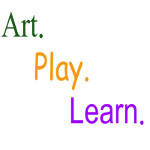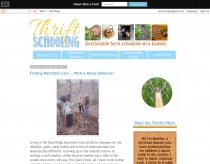Subscribe to the USFamilyGuide.com KidsScoop!
The monthly family event and savings newsletter. Receive coupons for Fun Activities, Summer Camps, Parties, Dining, Shopping, Field Trips, Child Care and more! We NEVER share your information.

Subscribe to the USFamilyGuide.com KidsScoop!
The monthly family event and savings newsletter. Receive coupons for Fun Activities, Summer Camps, Parties, Dining, Shopping, Field Trips, Child Care and more! We NEVER share your information.
 |
DISNEY PRINCESS - THE CONCERT RETURNS TO THE US IN 2024
Posted: Feb 13th, 2024
DISNEY PRINCESS – THE CONCERT KICKS OFF MARCH 5 Disney Princes - The Concert is coming to 19 Cities in March and April. Tickets are on sale now! See Full Intineary and Links to Ticket pages Below. Experience your favorite Disney Princess songs performed live by Broadway star… View AllDisney Princess - The Concert Reviews and Articles |

DISNEY PRINCESS - THE CONCERT RETURNS TO THE US IN 2024
Posted: Feb 13th, 2024
|
DISNEY PRINCESS – THE CONCERT KICKS OFF MARCH 5 Disney Princes - The Concert is coming to 19 Cities in March and April. Tickets are on sale now! See Full Intineary and Links to Ticket pages Below. Experience your favorite Disney Princess songs performed live by Broadway star…
 |
More than an event....
Posted: Jan 12th, 2023
\"This was an amazing event with a ton of things to do! I feel like we really got our money\'s worth. It was so much fun. My girls enjoyed the exhibits, bounce slide, baby dinos, and meeting the walking Dino, Diego. Some events just have the \"exhibit\", but all of the interactive parts were really … View AllJurassic Quest Reviews and Articles |

More than an event....
Posted: Jan 12th, 2023
|
\"This was an amazing event with a ton of things to do! I feel like we really got our money\'s worth. It was so much fun. My girls enjoyed the exhibits, bounce slide, baby dinos, and meeting the walking Dino, Diego. Some events just have the \"exhibit\", but all of the interactive parts were really …
 |
Perfect for introducing littles to the Nutcarcker
Posted: Jan 6th, 2023
We were very excited to be invited to @theimmersivenutcracker over the weekend! #hosted It’s not your typical nutcracker story… (there’s a three headed Mouse King!), but if you’re looking for a Nutcracker-esque performance that allows your kids to run aro… View AllTHE IMMERSIVE NUTCRACKER Reviews and Articles |

Perfect for introducing littles to the Nutcarcker
Posted: Jan 6th, 2023
|
We were very excited to be invited to @theimmersivenutcracker over the weekend! #hosted It’s not your typical nutcracker story… (there’s a three headed Mouse King!), but if you’re looking for a Nutcracker-esque performance that allows your kids to run aro…
 |
So much fun!
Posted: Nov 14th, 2022
The Ice Castles themselves were very cool as we pulled in-- towering 10+ feet tall. Getting in was a breeze. Pre-purchased web tickets are timed in 30 minute increments and they scanned us right in. We did have to sign a waiver of liability before we could go in. Tickets are $18/$20 for adults and $… View AllIce Castles Reviews and Articles |

So much fun!
Posted: Nov 14th, 2022
|
The Ice Castles themselves were very cool as we pulled in-- towering 10+ feet tall. Getting in was a breeze. Pre-purchased web tickets are timed in 30 minute increments and they scanned us right in. We did have to sign a waiver of liability before we could go in. Tickets are $18/$20 for adults and $…
 |
Champions Of Magic 2022-2023 Tour - SAVE 25% With Promo Code "TRUST"
Posted: Sep 28th, 2022
“You HAVE to check them out! That was tremendous!” –Access Hollywood Live“That’s incredible… you guys are rock stars” –FOX 8 Cleveland“I’m amazed… a one of a kind show” –FOX 4 Dallas-Fort Worth The five world-cl… View AllChampions Of Magic Reviews and Articles |

Champions Of Magic 2022-2023 Tour - SAVE 25% With Promo Code "TRUST"
Posted: Sep 28th, 2022
|
“You HAVE to check them out! That was tremendous!” –Access Hollywood Live“That’s incredible… you guys are rock stars” –FOX 8 Cleveland“I’m amazed… a one of a kind show” –FOX 4 Dallas-Fort Worth The five world-cl…
 |
Avid4 Adventure is growing!
Posted: Sep 27th, 2022
Avid4 Adventure is growing! And to support this continued growth, we are hiring a Chief of Finance & Operations Officer. We are seeking an experienced strategic financial and business operations leader to oversee the company's financial planning and position. This is a new position in the orga… View AllAvid4Adventure Reviews and Articles |

Avid4 Adventure is growing!
Posted: Sep 27th, 2022
|
Avid4 Adventure is growing! And to support this continued growth, we are hiring a Chief of Finance & Operations Officer. We are seeking an experienced strategic financial and business operations leader to oversee the company's financial planning and position. This is a new position in the orga…
 |
Absolutely adorable!
Posted: Jul 15th, 2022
Look how cute! My first box of this subscription came this morning and I am SO excited. What a great idea! (see below! I’ve gotten 2 more boxes and they’re all adorable!) First this great reusable gift box…. And then you open it up and … YAY! A little chef’s hat a… View AllBaketivity Reviews and Articles |

Absolutely adorable!
Posted: Jul 15th, 2022
|
Look how cute! My first box of this subscription came this morning and I am SO excited. What a great idea! (see below! I’ve gotten 2 more boxes and they’re all adorable!) First this great reusable gift box…. And then you open it up and … YAY! A little chef’s hat a…
 |
Considering Online Gifted Summer Programs? Here's What SIG Can Offer Your Student
Posted: May 4th, 2022
Students taking online courses have the opportunity to develop key skills at their own convenience, exploring their own potential while learning more about their subjects of interest. At Summer Institute for the Gifted, online students benefit from active and engaging learning experiences that can b… View AllSummer Institute for the Gifted Reviews and Articles |

Considering Online Gifted Summer Programs? Here's What SIG Can Offer Your Student
Posted: May 4th, 2022
|
Students taking online courses have the opportunity to develop key skills at their own convenience, exploring their own potential while learning more about their subjects of interest. At Summer Institute for the Gifted, online students benefit from active and engaging learning experiences that can b…
 |
How Students Can Shape Their Futures With Our Intensive Career Accelerator College Prep Programs
Posted: May 4th, 2022
As a leading pre-college summer program provider, Summer Discovery is committed to providing students with the experiences they need to kickstart their futures. Our Career Accelerator programs combine education and career exploration to help students transition into college life and beyond. Students… View AllSummer Discovery Reviews and Articles |

How Students Can Shape Their Futures With Our Intensive Career Accelerator College Prep Programs
Posted: May 4th, 2022
|
As a leading pre-college summer program provider, Summer Discovery is committed to providing students with the experiences they need to kickstart their futures. Our Career Accelerator programs combine education and career exploration to help students transition into college life and beyond. Students…
 |
Love the program!
Posted: Apr 30th, 2022
\"My son is learning Python and has a lot of fun and even works on completing the extra credit work.I’m so glad we found this website.\" - Monica M… View AllCodeWizardsHQ Reviews and Articles |

Love the program!
Posted: Apr 30th, 2022
|
\"My son is learning Python and has a lot of fun and even works on completing the extra credit work.I’m so glad we found this website.\" - Monica M…
 |
AT HOME TEETH WHITENING: DOES IT WORK?
Posted: Apr 6th, 2022
Have you ever wondered it at home teeth whitening kits actually work? Or do you wonder if its possible to whiten sensitive teeth from home? Allow me to share my experience… At Home Teeth Whitening Over the past few months, I’ve been keeping a secret from you, but I’m finally r… View AllSmile Brilliant Reviews and Articles |

AT HOME TEETH WHITENING: DOES IT WORK?
Posted: Apr 6th, 2022
|
Have you ever wondered it at home teeth whitening kits actually work? Or do you wonder if its possible to whiten sensitive teeth from home? Allow me to share my experience… At Home Teeth Whitening Over the past few months, I’ve been keeping a secret from you, but I’m finally r…
 |
What to Expect on a Chicago Urban Adventure Quest
Posted: Mar 23rd, 2022
A few posts ago, I gave a heads up on us taking on a Chicago Urban Adventure Quest. Well, guess what? It happened! This past Sunday, we took a spontaneous day trip to the Windy City to spend half of the day exploring downtown on our adventure quest. It was a little gloomy, but we still had an… View AllAmazing Scavenger Hunt Adventure Reviews and Articles |

What to Expect on a Chicago Urban Adventure Quest
Posted: Mar 23rd, 2022
|
A few posts ago, I gave a heads up on us taking on a Chicago Urban Adventure Quest. Well, guess what? It happened! This past Sunday, we took a spontaneous day trip to the Windy City to spend half of the day exploring downtown on our adventure quest. It was a little gloomy, but we still had an…
 |
When moments matter, print them
Posted: Mar 19th, 2022
When moments matter, print them. Printique is an online photo boutique that specializes in printing memories on photo books, prints and wall decor. Take the time to print your life for you and your little ones. Save 15% on your first order with code: WELCOME15Save 15% on your First P… View AllPrintique Reviews and Articles |

When moments matter, print them
Posted: Mar 19th, 2022
|
When moments matter, print them. Printique is an online photo boutique that specializes in printing memories on photo books, prints and wall decor. Take the time to print your life for you and your little ones. Save 15% on your first order with code: WELCOME15Save 15% on your First P…
 |
Personalized Videos From Santa for the Win
Posted: Dec 4th, 2021
I cannot even begin to tell you how much my kids love these each year! I absolutely love PNP Santa. What is it you ask? It’s A personalized Santa video just for your child to watch over and over. Let me tell you it really makes the excitement of Santa explode. Creating a video is super easy… View AllPortable North Pole Reviews and Articles |

Personalized Videos From Santa for the Win
Posted: Dec 4th, 2021
|
I cannot even begin to tell you how much my kids love these each year! I absolutely love PNP Santa. What is it you ask? It’s A personalized Santa video just for your child to watch over and over. Let me tell you it really makes the excitement of Santa explode. Creating a video is super easy…
 |
Save 20% Off Harlem Globetrotters
Posted: Nov 5th, 2021
My family and I attended the Harlem Globetrotters game in January 2020. This was our first globetrotter game and it was absolutely amazing! It was packed with so much from fun from start to finish. They put on a great show for the crowd. Very entertaining and exciting to watch for the whole family.&… View AllHarlem Globetrotters 2024 World Tour Reviews and Articles |

Save 20% Off Harlem Globetrotters
Posted: Nov 5th, 2021
|
My family and I attended the Harlem Globetrotters game in January 2020. This was our first globetrotter game and it was absolutely amazing! It was packed with so much from fun from start to finish. They put on a great show for the crowd. Very entertaining and exciting to watch for the whole family.&…
 |
KidzType.com: Kids Learn to Touch Type Just Like They Learn to Dance
Posted: Jun 6th, 2021
KidzType.com offers an innovative, simple way to teach kids to touch type: using a “dance mat.” The same way children learn to dance with “Just Dance” on their PC, they can learn to type with KidzType. On the screen, they’re shown a keyboard and hands. The keys and the… View AllKidzType Reviews and Articles |

KidzType.com: Kids Learn to Touch Type Just Like They Learn to Dance
Posted: Jun 6th, 2021
|
KidzType.com offers an innovative, simple way to teach kids to touch type: using a “dance mat.” The same way children learn to dance with “Just Dance” on their PC, they can learn to type with KidzType. On the screen, they’re shown a keyboard and hands. The keys and the…
 |
New LIVE Virtual Summer Camps to Help Students Recover Learning Loss Due to COVID-19
Posted: Apr 19th, 2021
New LIVE Virtual Summer Camps to Help Students Recover Learning Loss Due to COVID-19 As the pandemic has impacted students and families in many ways, learning loss has become a reality for many. Creative Brain Learning, a leading provider of extended day education and summer learning opportunities,… View AllCREATIVE BRAIN LEARNING | MUSICSTAR Reviews and Articles |

New LIVE Virtual Summer Camps to Help Students Recover Learning Loss Due to COVID-19
Posted: Apr 19th, 2021
|
New LIVE Virtual Summer Camps to Help Students Recover Learning Loss Due to COVID-19 As the pandemic has impacted students and families in many ways, learning loss has become a reality for many. Creative Brain Learning, a leading provider of extended day education and summer learning opportunities,…
 |
Challenger Soccer Camps
Posted: Mar 14th, 2021
Every year, I jump at the opportunity to send Austin to the Challenger Soccer Camps. He has a great time each year and always comes away with new skills! This is even more important to me now that we have Austin on a competitive soccer team. I want to keep him active, practicin… View AllChallenger Sports Reviews and Articles |

Challenger Soccer Camps
Posted: Mar 14th, 2021
|
Every year, I jump at the opportunity to send Austin to the Challenger Soccer Camps. He has a great time each year and always comes away with new skills! This is even more important to me now that we have Austin on a competitive soccer team. I want to keep him active, practicin…
 |
New Mother Approved
Posted: Feb 10th, 2021
I am a first time mother due in May and I keep hearing the importance of tummy time so I am really excited by the concept of The Crawligator. I can't wait to try it with my child! I'm very confident that it is backed by Pediatric physical therapists… View AllKiddy Crawler LLC Reviews and Articles |

New Mother Approved
Posted: Feb 10th, 2021
|
I am a first time mother due in May and I keep hearing the importance of tummy time so I am really excited by the concept of The Crawligator. I can't wait to try it with my child! I'm very confident that it is backed by Pediatric physical therapists…
 |
DISNEY PRINCESS - THE CONCERT RETURNS TO THE US IN 2024
Posted: Feb 13th, 2024
DISNEY PRINCESS – THE CONCERT KICKS OFF MARCH 5 Disney Princes - The Concert is coming to 19 Cities in March and April. Tickets are on sale now! See Full Intineary and Links to Ticket pages Below. Experience your favorite Disney Princess songs performed live by Broadway star… View AllDisney Princess - The Concert Reviews and Articles |

DISNEY PRINCESS - THE CONCERT RETURNS TO THE US IN 2024
Posted: Feb 13th, 2024
|
DISNEY PRINCESS – THE CONCERT KICKS OFF MARCH 5 Disney Princes - The Concert is coming to 19 Cities in March and April. Tickets are on sale now! See Full Intineary and Links to Ticket pages Below. Experience your favorite Disney Princess songs performed live by Broadway star…
 |
Definitely Wants to Come Back Next Year!
Posted: Nov 6th, 2023
My niece absolutely loved Steve and Kates Camp this summer. She had new stories every day of all the new activities and new friends from camp.Every time I picked her up I was in awe of how many different activities they had for all the kids to do and they were all still very well supervised.My niece… View AllSteve & Kate's Camp Reviews and Articles |

Definitely Wants to Come Back Next Year!
Posted: Nov 6th, 2023
|
My niece absolutely loved Steve and Kates Camp this summer. She had new stories every day of all the new activities and new friends from camp.Every time I picked her up I was in awe of how many different activities they had for all the kids to do and they were all still very well supervised.My niece…
 |
Ice Castles Bringing Winter Magic Back to Colorado with New Location in Cripple Creek
Posted: Oct 6th, 2023
Cripple Creek, Colorado, September 26, 2023 – A magical, frozen attraction is bringing its fairytale experience back to the Centennial State. After two seasons away, Ice Castles will return to Colorado in December 2023 with a new location in Cripple Creek. Cripple Creek is well known for its a… View AllIce Castles Reviews and Articles |

Ice Castles Bringing Winter Magic Back to Colorado with New Location in Cripple Creek
Posted: Oct 6th, 2023
|
Cripple Creek, Colorado, September 26, 2023 – A magical, frozen attraction is bringing its fairytale experience back to the Centennial State. After two seasons away, Ice Castles will return to Colorado in December 2023 with a new location in Cripple Creek. Cripple Creek is well known for its a…
 |
Online Spanish Classes
Posted: Aug 30th, 2023
Event Title: Not-absolute Beginner Spanish Elementary Event Start Date: Sept 15 Event End Date: Dec 8th Event logo file name: Hola sign.png Event website link: https://www.artplaylearn.com/spanish Event details: A fun, interactive Zoom-based class where students with some very basic Spanis… View AllArt, Play & Learn Reviews and Articles |

Online Spanish Classes
Posted: Aug 30th, 2023
|
Event Title: Not-absolute Beginner Spanish Elementary Event Start Date: Sept 15 Event End Date: Dec 8th Event logo file name: Hola sign.png Event website link: https://www.artplaylearn.com/spanish Event details: A fun, interactive Zoom-based class where students with some very basic Spanis…
 |
A Roaring good time!
Posted: Jul 7th, 2023
Jurassic Quest roared into the St Charles area and I was excited to take my shenanigans squad to see it. The twins are 5. They still get scared of some things so this particular day I had 1 super excited and 1 not too sure what was going on. Luckily the excited one is … View AllJurassic Quest - Nationwide Reviews and Articles |

A Roaring good time!
Posted: Jul 7th, 2023
|
Jurassic Quest roared into the St Charles area and I was excited to take my shenanigans squad to see it. The twins are 5. They still get scared of some things so this particular day I had 1 super excited and 1 not too sure what was going on. Luckily the excited one is …
 |
Foam Frenzy --FREE Event at AZ Bpardwalk
Posted: Jun 30th, 2023
JULY EVENTS 2023 Foam Frenzy July 15 10 a.m. – 1 p.m. This FREE event features endless foam parties, classic fire truck water play, water squirter battle zones, and other fun water activities! Kick off summer at the coolest water party around! No Admission or Activity Fees Required. PHO… View AllArizona Boardwalk Reviews and Articles |

Foam Frenzy --FREE Event at AZ Bpardwalk
Posted: Jun 30th, 2023
|
JULY EVENTS 2023 Foam Frenzy July 15 10 a.m. – 1 p.m. This FREE event features endless foam parties, classic fire truck water play, water squirter battle zones, and other fun water activities! Kick off summer at the coolest water party around! No Admission or Activity Fees Required. PHO…
 |
JULY EVENTS 2023 at Butterfly Wonderland
Posted: Jun 30th, 2023
JULY EVENTS 2023 July Coloring Contest July 1 - 28 Entries can be dropped off at ‘Guest Services’ or mailed to Butterfly Wonderland Butterfly Wonderland invites children ages 6 -17 to participate in its annual Summer Coloring Contest for a chance to win two free tickets to … View AllButterfly Wonderland Reviews and Articles |

JULY EVENTS 2023 at Butterfly Wonderland
Posted: Jun 30th, 2023
|
JULY EVENTS 2023 July Coloring Contest July 1 - 28 Entries can be dropped off at ‘Guest Services’ or mailed to Butterfly Wonderland Butterfly Wonderland invites children ages 6 -17 to participate in its annual Summer Coloring Contest for a chance to win two free tickets to …
 |
Make this Christmas even more magical with Portable North Pole!
Posted: Mar 23rd, 2023
Without the chance to see Santa at the mall this year, Portable North Pole makes it easy to safely celebrate Christmas with Santa with up to 60+ messages ready to be personalized for your loved ones. Whether you\'re sending a message to a child, a teenager, or even a grown-… View AllPortable North Pole - Birthday Parties Reviews and Articles |

Make this Christmas even more magical with Portable North Pole!
Posted: Mar 23rd, 2023
|
Without the chance to see Santa at the mall this year, Portable North Pole makes it easy to safely celebrate Christmas with Santa with up to 60+ messages ready to be personalized for your loved ones. Whether you\'re sending a message to a child, a teenager, or even a grown-…
 |
Make Room: take control of your space, time, energy and money for your purpose
Posted: Feb 25th, 2023
About the Author Jennifer Ford Berry is a bestselling author, host of The 29 Minute Mom podcast, and a certified professional organizer who has decluttered thousands of homes. Previously the lead organizer on the show Winging It, Buffalo Style, Berry is an animated speaker and has been featured … View AllThe 29 Minute Mom Podcast Reviews and Articles |

Make Room: take control of your space, time, energy and money for your purpose
Posted: Feb 25th, 2023
|
About the Author Jennifer Ford Berry is a bestselling author, host of The 29 Minute Mom podcast, and a certified professional organizer who has decluttered thousands of homes. Previously the lead organizer on the show Winging It, Buffalo Style, Berry is an animated speaker and has been featured …
 |
She Loves Camp
Posted: Feb 2nd, 2023
During dinner, my daughter requested to change the lights to an "open circuit" - we LOVED that she was integrating her new-found knowledge and excited about teaching us what she had learned! I love the projects they do and the excitement my daughter has for learning at camp. Sara M… View AllDestination Science Reviews and Articles |

She Loves Camp
Posted: Feb 2nd, 2023
|
During dinner, my daughter requested to change the lights to an "open circuit" - we LOVED that she was integrating her new-found knowledge and excited about teaching us what she had learned! I love the projects they do and the excitement my daughter has for learning at camp. Sara M…
 |
Review: Game Night with UnboxBoardom
Posted: Apr 28th, 2023
Have you heard about UnboxBoardom? It is a subscription board game service and you get brand-new games delivered right to your front door! You can select from featured monthly games or just be surprised. They have different styles of games that range from family games to strategy gam… View AllClipping Money Posts |

Review: Game Night with UnboxBoardom
Posted: Apr 28th, 2023
|
Have you heard about UnboxBoardom? It is a subscription board game service and you get brand-new games delivered right to your front door! You can select from featured monthly games or just be surprised. They have different styles of games that range from family games to strategy gam…
 |
Family Planning for Those With a Genetic Disorder: Essential Advice
Posted: Oct 10th, 2022
Image from Unsplash If you are a carrier of a genetic disorder, you may be wondering how to best plan for your family. There may be a lot on your mind - from the safety and health of your potential offspring to practical concerns and testing requirements. If so, keep reading, as US Family Guide sha… View AllPosts |

Family Planning for Those With a Genetic Disorder: Essential Advice
Posted: Oct 10th, 2022
|
Image from Unsplash If you are a carrier of a genetic disorder, you may be wondering how to best plan for your family. There may be a lot on your mind - from the safety and health of your potential offspring to practical concerns and testing requirements. If so, keep reading, as US Family Guide sha…
 |
REVIEW: Baketivity and the Compost Cookie
Posted: May 21st, 2022
Baby Doll and I were SO excited to get our first Baketivity box! She loves baking and the opportunity to bake with mom made it all that much more fun. The box showed up as promised and we quickly tore it open. The first thing we saw was her apron and chef\'s hat! It was full of li… View AllTwelve Makes A Dozen Posts |

REVIEW: Baketivity and the Compost Cookie
Posted: May 21st, 2022
|
Baby Doll and I were SO excited to get our first Baketivity box! She loves baking and the opportunity to bake with mom made it all that much more fun. The box showed up as promised and we quickly tore it open. The first thing we saw was her apron and chef\'s hat! It was full of li…
 |
My New Pups
Posted: Apr 21st, 2022
When moments matter, print them. Printique is an online photo boutique that specializes in printing memories on photo books, prints, and wall decor. Take the time to print your life for you and your little ones. Save 15% on your first order with code: WELCOME15. Meet Annie… View AllThrift Schooling Posts |

My New Pups
Posted: Apr 21st, 2022
|
When moments matter, print them. Printique is an online photo boutique that specializes in printing memories on photo books, prints, and wall decor. Take the time to print your life for you and your little ones. Save 15% on your first order with code: WELCOME15. Meet Annie…
 |
Review: Home Chef Meal Service
Posted: Apr 9th, 2022
I love to cook. When US Family Guide and Home Chef offered me two free meals for two, I jumped at the chance. Home Chef delivers ready to cook meal kits. The shopping and most of the prep work is done! You get just enough of each ingredient, and you add minimal ingredients that are already… View AllHewes Family Fun Posts |

Review: Home Chef Meal Service
Posted: Apr 9th, 2022
|
I love to cook. When US Family Guide and Home Chef offered me two free meals for two, I jumped at the chance. Home Chef delivers ready to cook meal kits. The shopping and most of the prep work is done! You get just enough of each ingredient, and you add minimal ingredients that are already…



